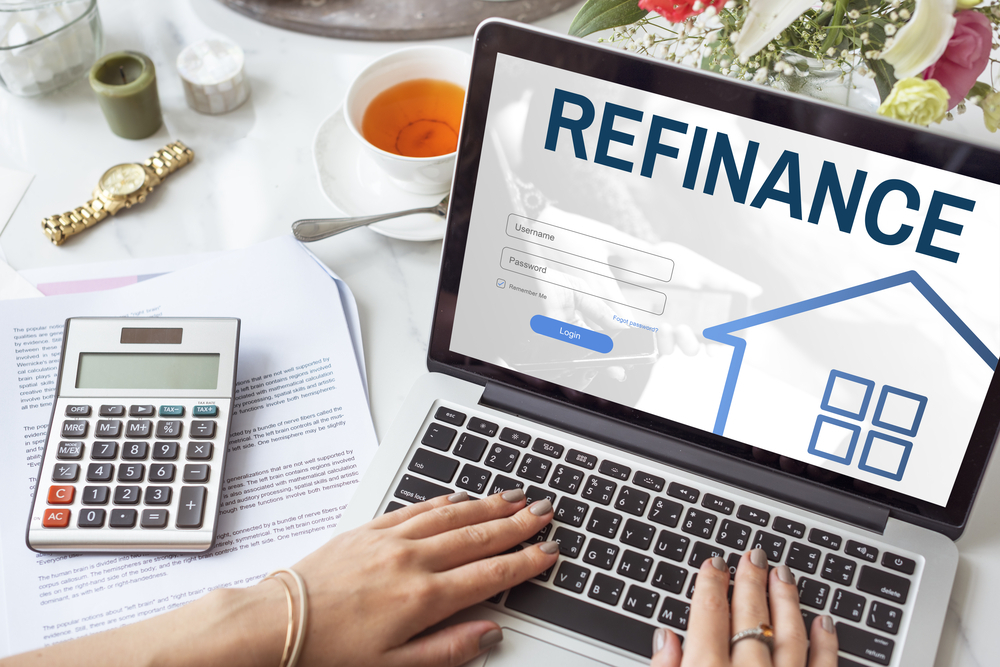There may be times when you consider going directly to the bank for a loan. Although your relationship banker can be convincing, there are some things you should know first. A mortgage loan can be an incredibly useful option, but only if you understand what you’re doing.
Consider refinancing.
When mortgage interest rates drop, many homeowners turn to refinancing. Refinancing your mortgage loan can be an easy way to save money. It may help you build your equity and pay off your mortgage faster.
If you are considering refinancing, an experienced mortgage broker can guide you through the process.
In some cases, borrowers can shave almost 75% of their mortgage rates through refinancing. Market factors, including long-term treasury bonds, can fluctuate. Yields can change, and at times, you may be able to take full advantage of better rates and terms.
But be cautious. Refinancing isn’t simply about mortgage rates. It’s also about your eligibility. Your credit trustworthiness plays a significant role in refinancing. Your overall financial health, your home equity, and your loan duration are all important factors to consider.
Is Refinancing Worth It?
There are numerous ways that you can refinance your mortgage(s). Finding the right one is entirely dependent on your goals. You can switch your adjustable-rate mortgage to a fixed-rate mortgage. Similarly, you can change the duration of your loan. For example, some borrowers may switch from 30 years to 10 years, reducing interest along the way.
Refinancing can also help you reduce private mortgage insurance (PMI) once your home equity has passed 20%.
Generally, most borrowers go for a straight rate-and-term refinance, which eventually helps to lower interest rates and, at the same time, provides a more convenient repayment term. Some borrowers opt for lower monthly payments, freeing up money for personal purposes.
What Is a Cash-Out Mortgage Refinance?
Cash-out refinancing is an important option for many borrowers. Some people do this to pay off debts, such as credit cards or student loans. You can often lower your monthly payments while also addressing other major expenses.
Just make sure once you consolidate your debt, that you stay consolidated. Sometimes, borrowers return to their old ways, getting lost in multiple credit cards, bills and high-interest loans.
After all, if you fall behind on your mortgage payments, you may end up losing your home. Fortunately, you can consult Philadelphia Mortgage Brokers about your loan. They can help you every step of the way.
Recouping Refinancing Costs
Your loan payment isn’t the one and only expense to consider when thinking of refinancing your mortgage. There are also closing costs. Closing costs can range from 2 to 5 percent of your loan amount.
That said, many banks let you roll your closing costs into your mortgage. This means that you will have to pay interest on these costs for the duration of the loan.
You should consider all applicable fees and costs before refinancing. On the off chance that you intend to sell the house before you break even, renegotiating probably isn’t justified. Ensure that any drops in your monthly payments make sense financially.
In some cases, you may still have many years to go before breaking even.
One of the main reasons for refinancing is reducing the loan cost. As you make and save more money, your FICO assessment may improve. This can increase your likelihood of refinancing approval.
With improved credit trustworthiness, you may be able to get lower rates. This may save you considerably over the life of your loan payments.
Moreover, you can take cash out to make big purchases. You may want a new car. You may be hoping to go back to school. Perhaps, you simply want to treat yourself. Whatever the reasons, cash-out refinancing can help.
The more home equity you have, the easier it may be.
Your home will first be appraised. Then mortgage lenders will determine how much they are willing to provide you. You are ultimately paid the difference between your home’s value and the mortgage balance.
Some borrowers are able to take out significant home value credit extensions. These funds can be used to renovate and repair large portions of property.
Types of Refinancing Available
Again, there are many types of refinancing options available. However, before you consult with any brokers, ensure that the mortgage brokers are licensed.
Upon talking with your broker, you may choose to refinance in order to:
• Change the loan duration: One of the most common reasons for refinancing is to change the loan duration. When you shorten your loan period, your interest rate gets lower at the same time. This can make a large difference in the long-run.
• Lower rates: Improving your interest rates can help you significantly reduce monthly payments.
• Cash-out home equity: Homeowners may have the option to extract home equity from their homes. This equity can be used for repairing homes or paying off personal expenses as well. It can also be used for paying off loan amounts at reduced interest rates.
So consider the many options and consequences of refinancing. A mortgage refinance may allow you to considerably lower your payments, interest rates, and loan durations.
If you need help, consult a broker you can trust. At Latitude Financial, we have a team of skilled and experienced Mortgage brokers. You can get complete assistance for your refinancing needs.






